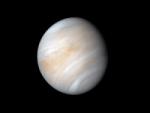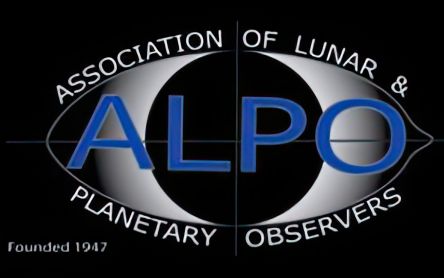
Venus Blog
We have a sighting of Venus’ Atmospheric Discontinuity in an IR (820-920 nm) observation of Venus taken by ALPO member Luigi Morrone captured on July 17th. As seen in his image below, the atmospheric rift appears as a “gouge” in the cloud deck.
This is a wonderful example of how amateur observers can continue to contribute to scientific investigation of our Solar System. As noted in an article in Sky & Telescope, “The quality and precision of the instrumentation available to amateur astronomers has improved markedly in recent years. They are now able to make really important contributions to the study of planetary bodies in our solar system that seriously complement what the professionals can do.”
We encourage all Venus section members to try to image the planet in IR to see if they can record the presence of this enigma in the planet’s atmosphere. All observations, whether including the discontinuity or not, should be sent to the section coordinator at venus@alpo-astronomy.org . Please follow the guidelines when submitting images.
Congratulations Luigi, job well done!
Venus News Headlines
Parker Probe Swings by Venus
11/5/2024
Read More
Venus Discontinuity Spotted Again
8/1/2024
The Venus Cloud Discontinuity, first reported
in 2016, has been captured again by ALPO member Luigi Morrone in recent
images as the planet emerged from superior conjunction. Scientists are not
sure why this unique atmospheric wall formed and continue to study it to
learn more. Congratulations to Luigi for imaging the rift and underscoring
how amateur astronomers still contribute to scientific investigation.
Read More
Oxygen Uncovered in Venus' Atmosphere
11/8/2023
German scientists using data obtained from NASA's Stratospheric Observatory for Infrared Astronomy (SOFIA) have detected molecular oxygen on our sister planet. While observed before on the nightside of Venus this marks the first time it has been detected in the day-lit regions as well.
Read More
Event Calendar
Apr 24, 2025
Venus at greatest brightness
May 31, 2025
Venus at greatest elongation west
Jun 01, 2025
Venus at dichotomy
